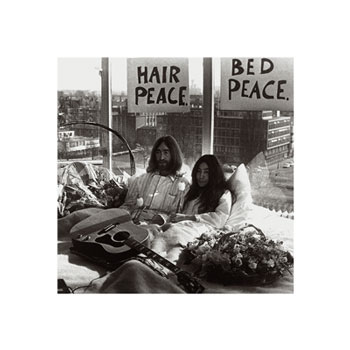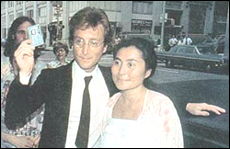

|
Your Most Trusted Source of Foreign
News and Views About the United States
|
By David Usborne
September 23, 2005
It was apparently with much relief that the FBI had a sudden revelation about the former Beatle John Lennon, back in 1972. For months the agency had been fretting that the singer-turned-activist was preparing to disrupt the Republican National Convention in Miami. Then somebody said it: Lennon was far too stoned to be a real threat.
The moment when the FBI concluded that
pot had got the better of the late rock star is recorded in one of a myriad
of files on deceased celebrities released by the
The same collection of papers reveals how far the agency went to spy on other celebrities, ranging from Marilyn Monroe - supposedly a Communist - to Liberace, who apparently had a gambling problem.
There has never been any secret about
the preoccupation of the
The surveillance only really ended in
1976 after Lennon won his battle with the Immigration and Naturalization
Service for the right to remain in the

In one memorandum from 1972 an FBI agent writes that Lennon wanted a visa extension only so he could "engage in disruptive activities” surrounding the Republican convention that renominated Richard Nixon for a second term.
But an informant advised the FBI not to get so exercised about the singer from Liverpool. He said that although Lennon "appears to be radically oriented," he did not give the impression of being seriously committed to any cause, "since he is constantly under the influence of narcotics."
The travails of Lennon as he tried to
make
Due for release in the
middle of next year, The
This week, the BBC revealed that in November
it plans to broadcast for the first time in

It was apparently with much relief that the FBI had a sudden revelation about the former Beatle John Lennon, back in 1972. For months the agency had been fretting that the singer-turned-activist was preparing to disrupt the Republican National Convention in Miami. Then somebody said it: Lennon was far too stoned to be a real threat.
The moment when the FBI concluded that
pot had got the better of the late rock star is recorded in one of a myriad
of files on deceased celebrities released by the
The same collection of papers reveals how far the agency went to spy on other celebrities, ranging from Marilyn Monroe - supposedly a Communist - to Liberace, who apparently had a gambling problem.
There has never been any secret about
the preoccupation of the

The surveillance only really ended in
1976 after Lennon won his battle with the Immigration and Naturalisation Service for the right to remain in the
In one memorandum from 1972 an FBI agent writes that Lennon wanted a visa extension only so he could "engage in disruptive activities surrounding the Republican convention that renominated Richard Nixon for a second term.
But an informant advised the FBI not to get so exercised about the singer from Liverpool. He said that although Lennon "appears to be radically oriented", he did not give the impression of being seriously committed to any cause, "since he is constantly under the influence of narcotics."
The travails of Lennon as he tried to
make
Due for release in the middle of next
year, The U.S. vs John Lennon, to be directed
by David Leaf, is described as a chronicle of the surveillance of the ex-Beatle
until 1976, when a Democrat, Jimmy Carter, won the presidency. Yoko Ono,
who still lives in the same Dakota Building apartment, 25 years after her husband's death, has co-operated on the
project. She was also involved in a Broadway musical, Lennon,
that opened to poor reviews six weeks ago. The musical lingers on
Lennon's battle to win residency in the
This week, the BBC revealed that in November
it plans to broadcast for the first time in